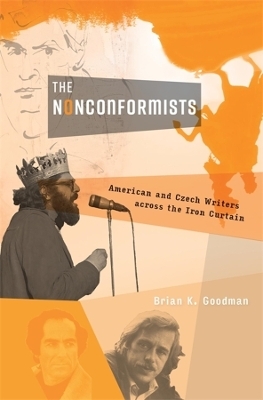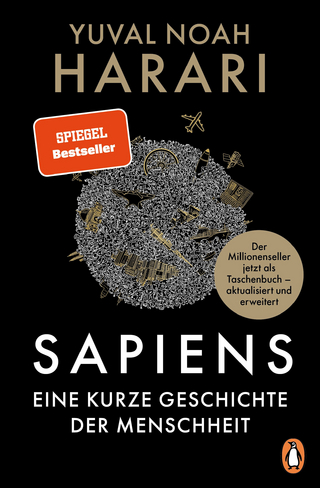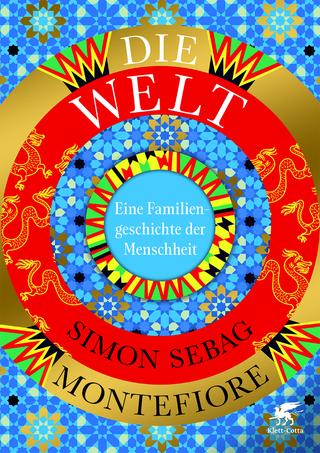
The Nonconformists
American and Czech Writers across the Iron Curtain
Seiten
2023
Harvard University Press (Verlag)
978-0-674-98337-3 (ISBN)
Harvard University Press (Verlag)
978-0-674-98337-3 (ISBN)
The Cold War was an era of surprising connections between American and Czech literary cultures. Major writers met behind the Iron Curtain, while others smuggled, translated, and adapted works from the other side. Brian K. Goodman explores the artistic and political consequences, arguing that the movement of literature inspired new forms of dissent.
How risky encounters between American and Czech writers behind the Iron Curtain shaped the art and politics of the Cold War and helped define an era of dissent.
“In some indescribable way, we are each other’s continuation,” Arthur Miller wrote of the imprisoned Czech playwright Václav Havel. After a Soviet-led invasion ended the Prague Spring, many US-based writers experienced a similar shock of solidarity. Brian Goodman examines the surprising and consequential connections between American and Czech literary cultures during the Cold War—connections that influenced art and politics on both sides of the Iron Curtain.
American writers had long been attracted to Prague, a city they associated with the spectral figure of Franz Kafka. Goodman reconstructs the Czech journeys of Allen Ginsberg, Philip Roth, and John Updike, as well as their friendships with nonconformists like Havel, Josef Škvorecký, Ivan Klíma, and Milan Kundera. Czechoslovakia, meanwhile, was home to a literary counterculture shaped by years of engagement with American sources, from Moby-Dick and the Beats to Dixieland jazz and rock ’n’ roll. Czechs eagerly followed cultural trends in the United States, creatively appropriating works by authors like Langston Hughes and Ernest Hemingway, sometimes at considerable risk to themselves.
The Nonconformists tells the story of a group of writers who crossed boundaries of language and politics, rearranging them in the process. The transnational circulation of literature played an important role in the formation of new subcultures and reading publics, reshaping political imaginations and transforming the city of Kafka into a global capital of dissent. From the postwar dream of a “Czechoslovak road to socialism” to the neoconservative embrace of Eastern bloc dissidence on the eve of the Velvet Revolution, history was changed by a collision of literary cultures.
How risky encounters between American and Czech writers behind the Iron Curtain shaped the art and politics of the Cold War and helped define an era of dissent.
“In some indescribable way, we are each other’s continuation,” Arthur Miller wrote of the imprisoned Czech playwright Václav Havel. After a Soviet-led invasion ended the Prague Spring, many US-based writers experienced a similar shock of solidarity. Brian Goodman examines the surprising and consequential connections between American and Czech literary cultures during the Cold War—connections that influenced art and politics on both sides of the Iron Curtain.
American writers had long been attracted to Prague, a city they associated with the spectral figure of Franz Kafka. Goodman reconstructs the Czech journeys of Allen Ginsberg, Philip Roth, and John Updike, as well as their friendships with nonconformists like Havel, Josef Škvorecký, Ivan Klíma, and Milan Kundera. Czechoslovakia, meanwhile, was home to a literary counterculture shaped by years of engagement with American sources, from Moby-Dick and the Beats to Dixieland jazz and rock ’n’ roll. Czechs eagerly followed cultural trends in the United States, creatively appropriating works by authors like Langston Hughes and Ernest Hemingway, sometimes at considerable risk to themselves.
The Nonconformists tells the story of a group of writers who crossed boundaries of language and politics, rearranging them in the process. The transnational circulation of literature played an important role in the formation of new subcultures and reading publics, reshaping political imaginations and transforming the city of Kafka into a global capital of dissent. From the postwar dream of a “Czechoslovak road to socialism” to the neoconservative embrace of Eastern bloc dissidence on the eve of the Velvet Revolution, history was changed by a collision of literary cultures.
Brian K. Goodman specializes in American studies, literature and human rights, and dissident cultures and has written for the Los Angeles Review of Books and Public Books. He is Assistant Professor of English at Arizona State University, where he is a Faculty Affiliate at the Center for Jewish Studies and the Melikian Center for Russian, Eurasian, and East European Studies.
| Erscheinungsdatum | 02.06.2023 |
|---|---|
| Zusatzinfo | 1 Maps |
| Verlagsort | Cambridge, Mass |
| Sprache | englisch |
| Maße | 156 x 235 mm |
| Gewicht | 726 g |
| Themenwelt | Literatur ► Biografien / Erfahrungsberichte |
| Geisteswissenschaften ► Geschichte ► Allgemeine Geschichte | |
| Geisteswissenschaften ► Geschichte ► Regional- / Ländergeschichte | |
| Geisteswissenschaften ► Sprach- / Literaturwissenschaft ► Anglistik / Amerikanistik | |
| Geisteswissenschaften ► Sprach- / Literaturwissenschaft ► Literaturwissenschaft | |
| ISBN-10 | 0-674-98337-8 / 0674983378 |
| ISBN-13 | 978-0-674-98337-3 / 9780674983373 |
| Zustand | Neuware |
| Informationen gemäß Produktsicherheitsverordnung (GPSR) | |
| Haben Sie eine Frage zum Produkt? |
Mehr entdecken
aus dem Bereich
aus dem Bereich
eine Familiengeschichte der Menschheit
Buch | Hardcover (2023)
Klett-Cotta (Verlag)
49,00 €
Eine wahre Geschichte von Schiffbruch, Mord und Meuterei
Buch | Hardcover (2024)
C.Bertelsmann (Verlag)
25,00 €


